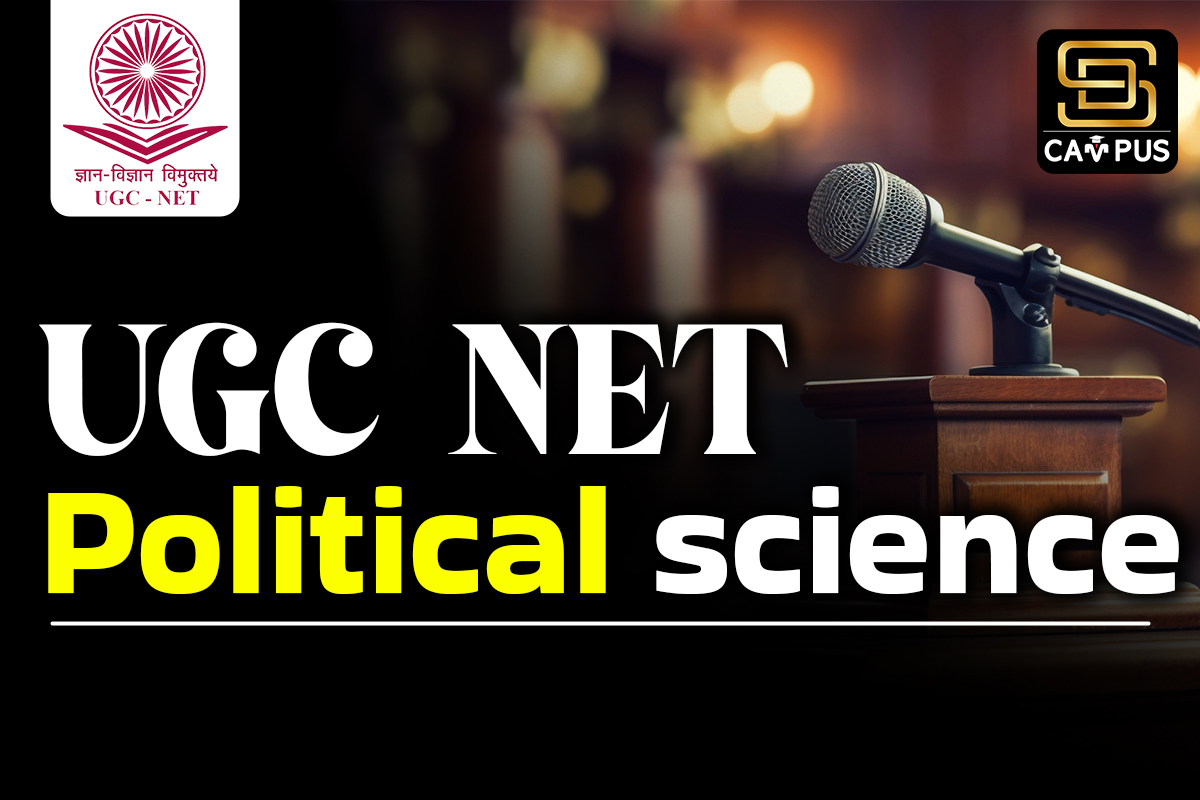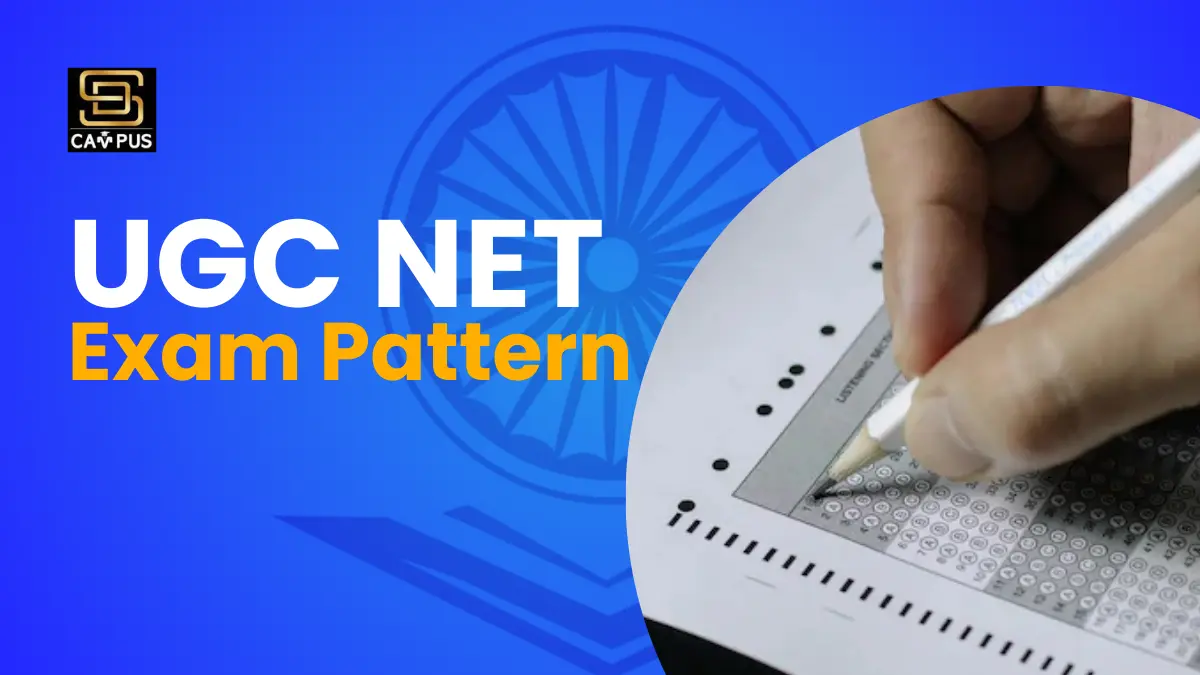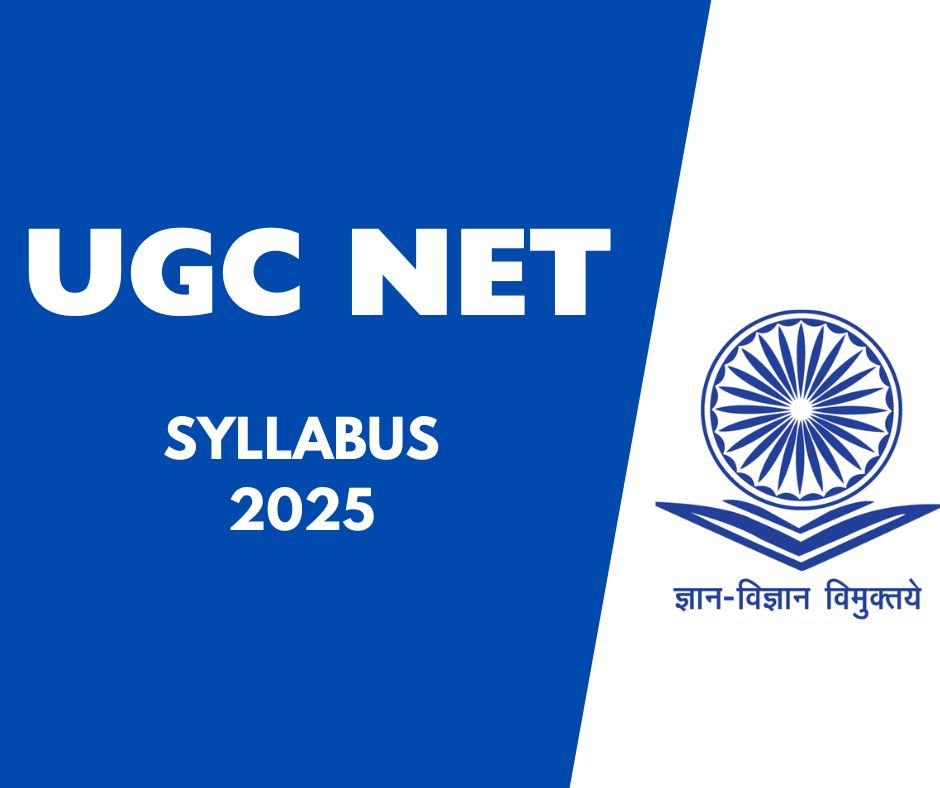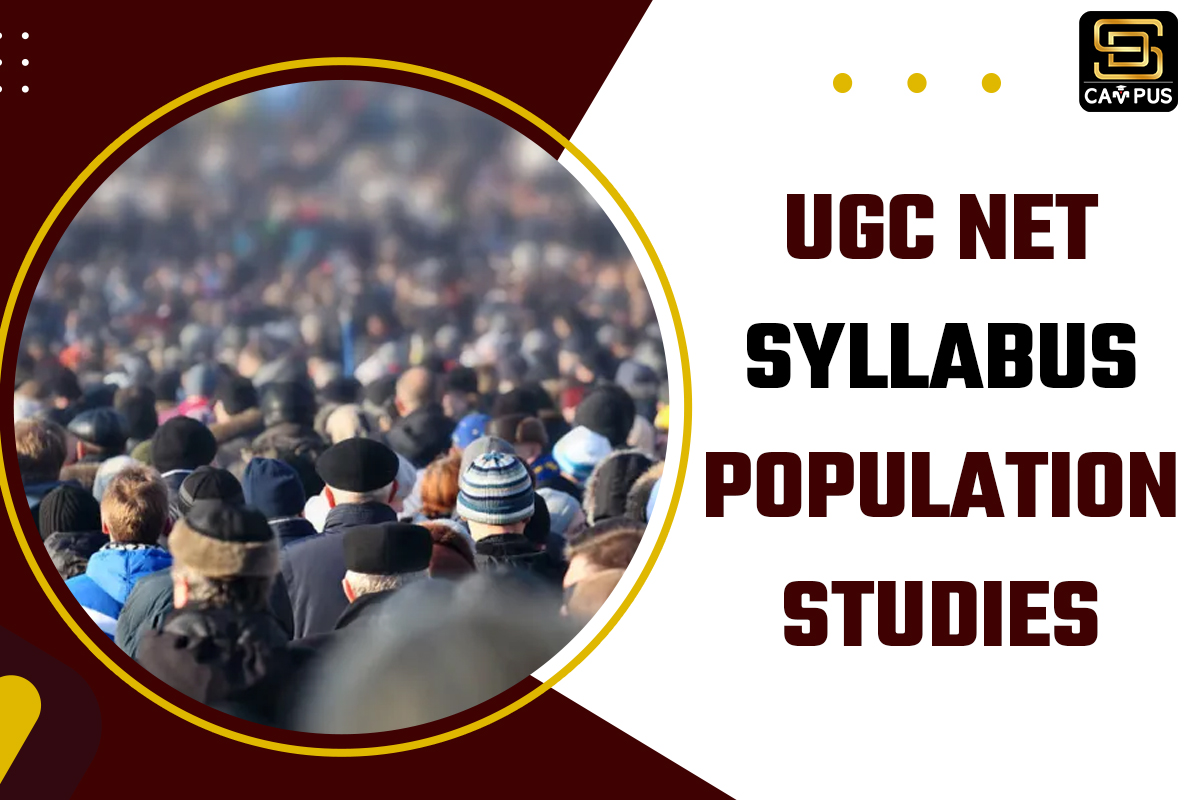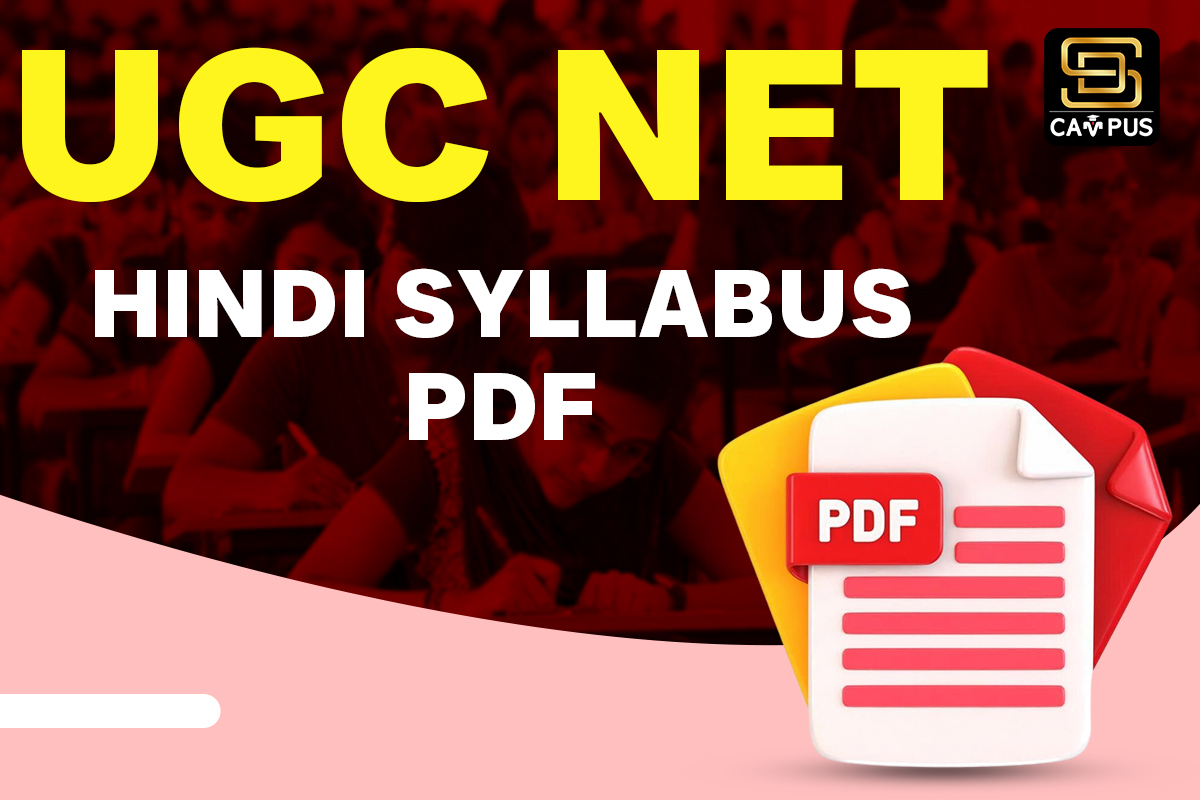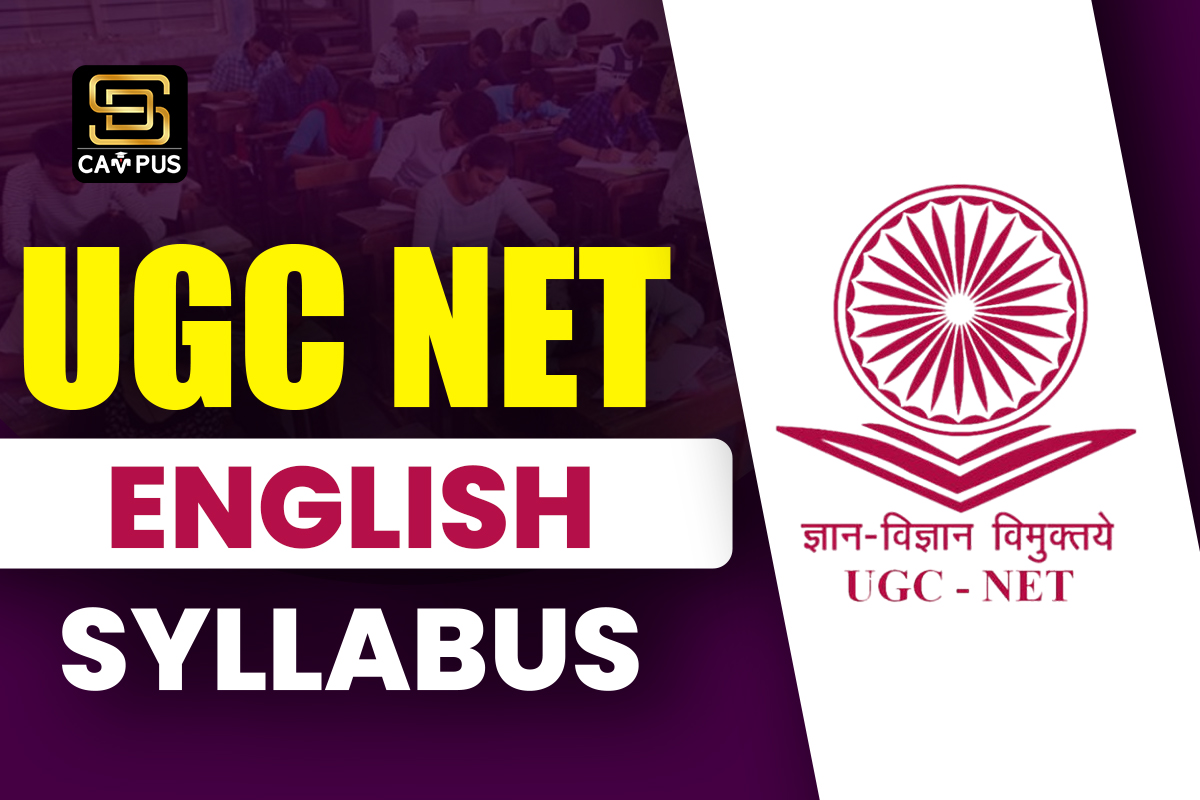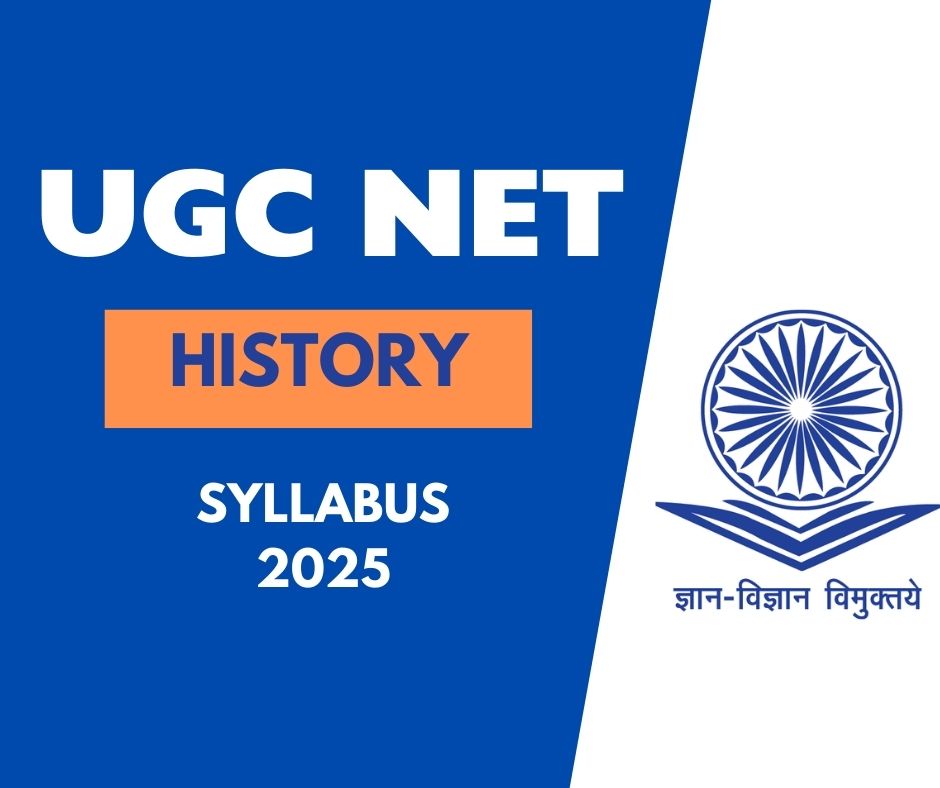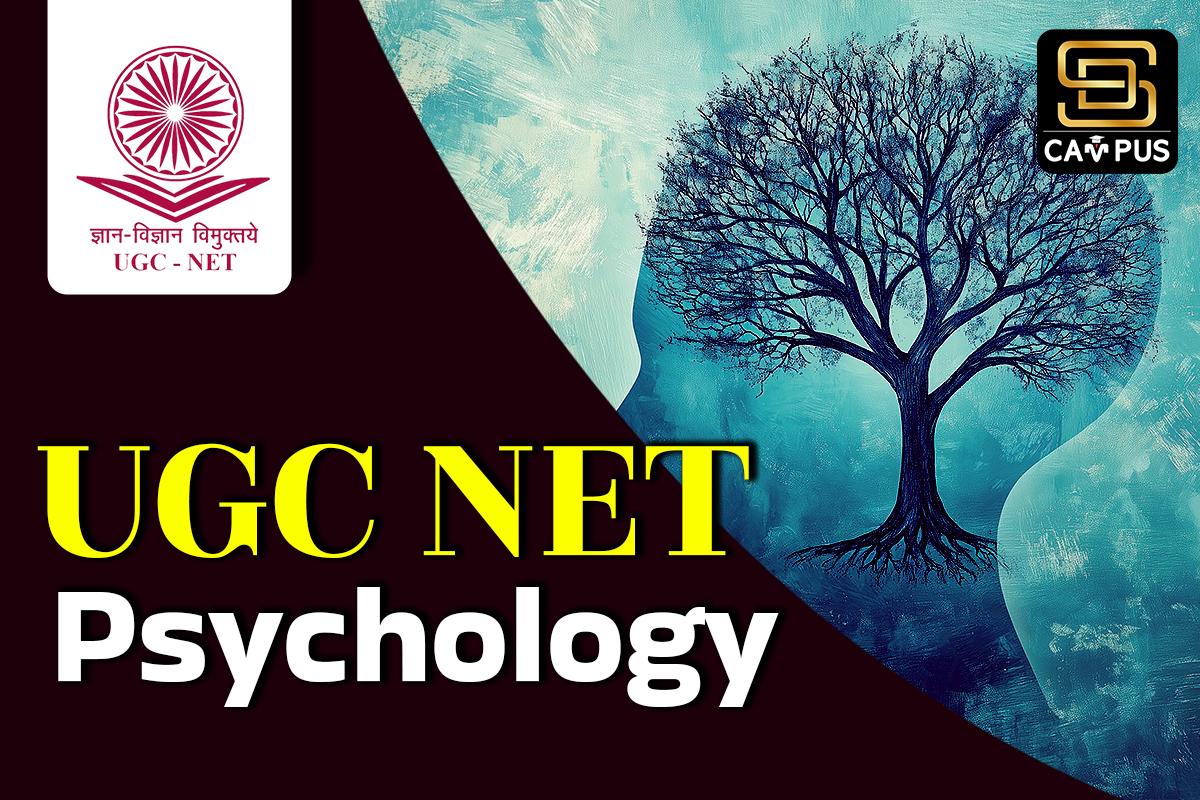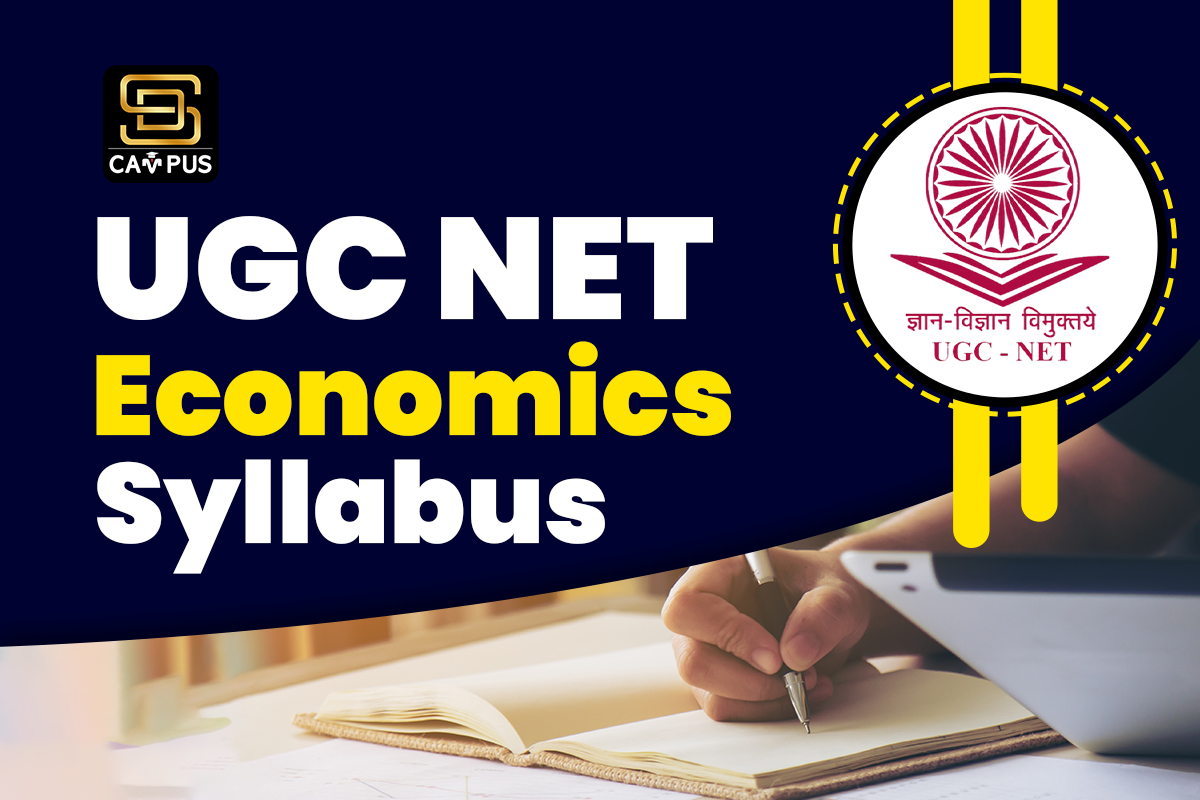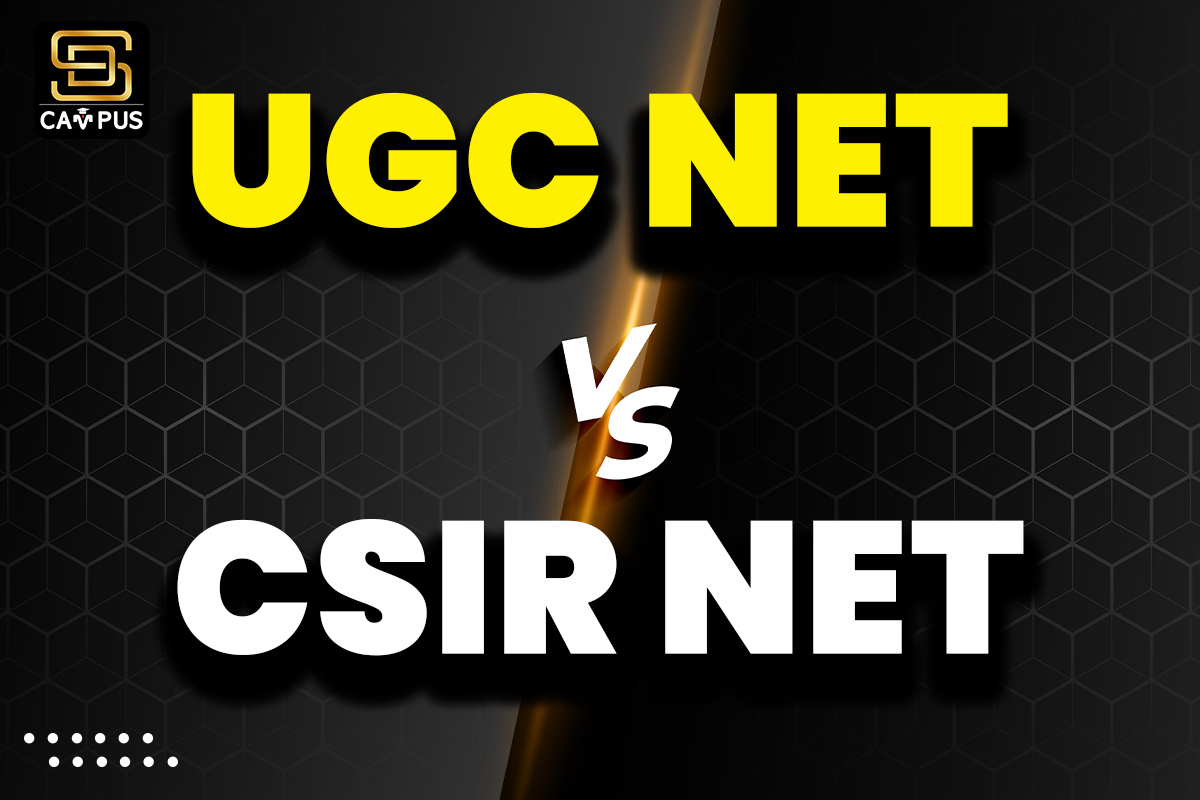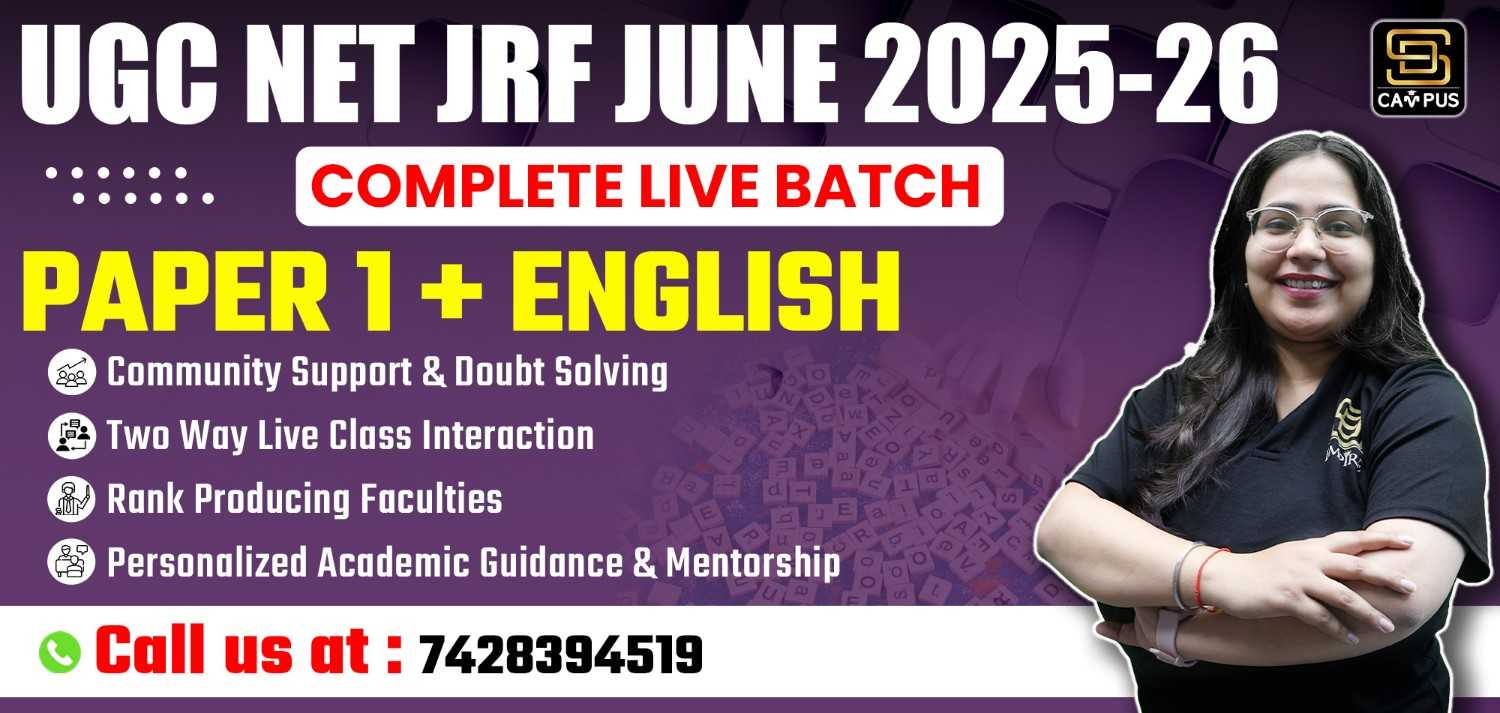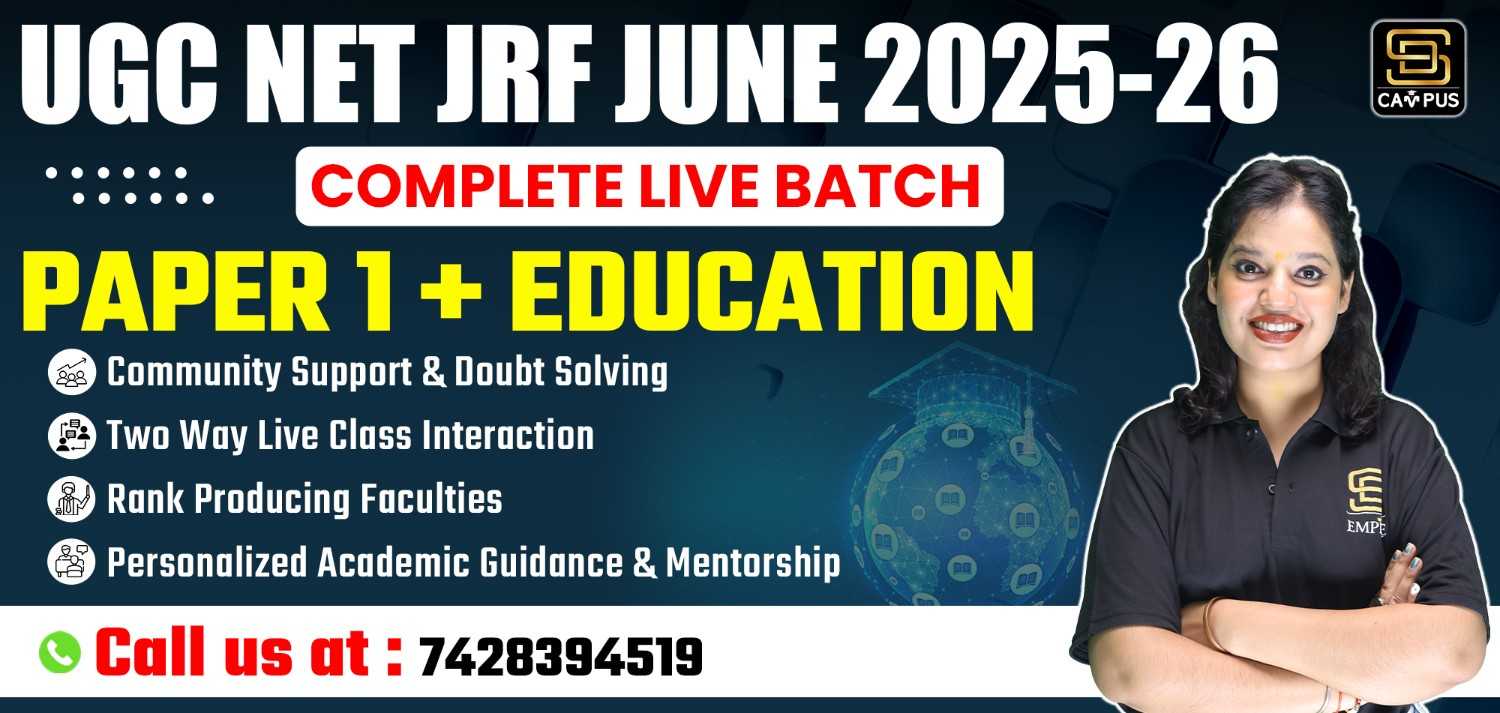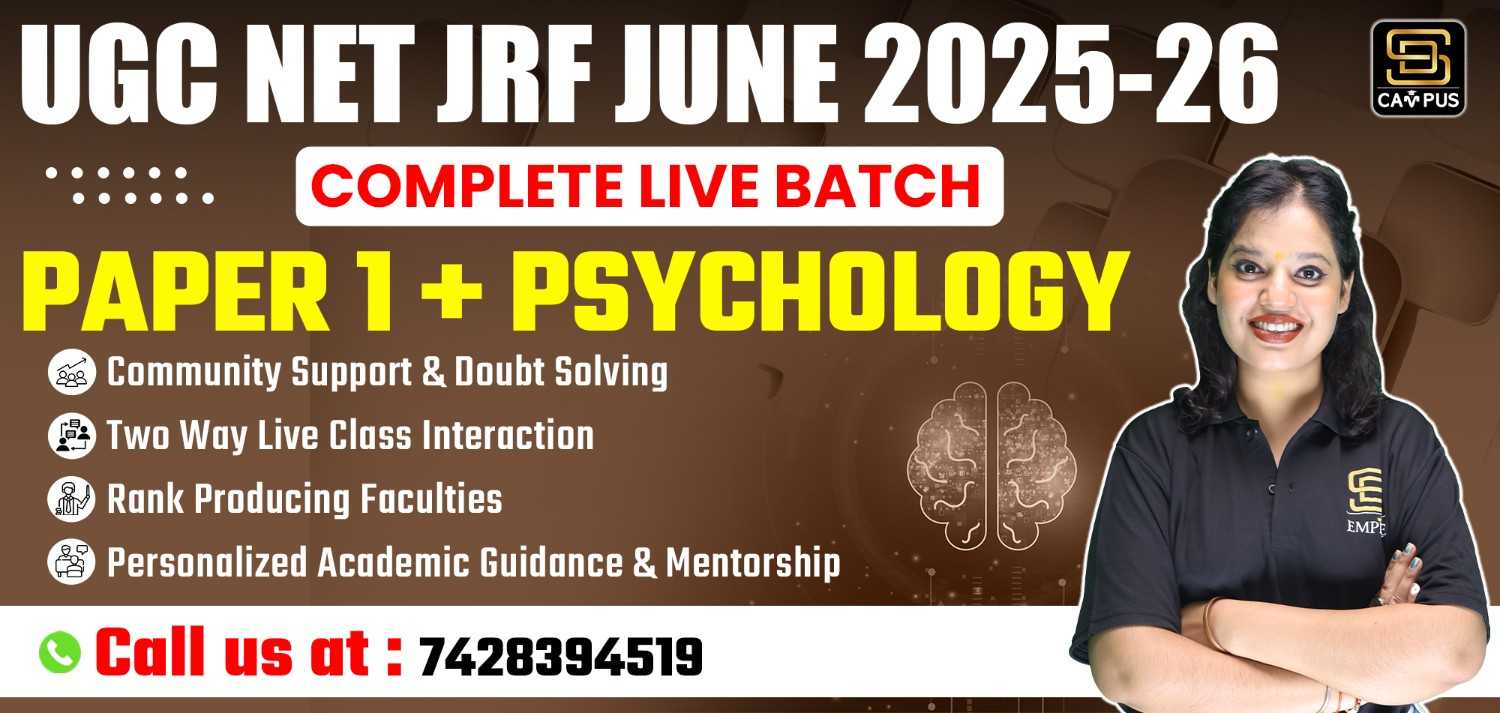Table of Contents
ToggleH1: UGC NET Political Science Syllabus 2025: Paper 1 and 2
UGC NET political science syllabus is the guiding factor for the preparation of the UGC exam. Soon, the UGC exam dates will be notified for the June 2025 session. The exam includes two papers, one is mandatory for all UGC aspirants, and the other one is specific to the chosen subject.
Continue reading the article for the detailed NET syllabus, political science, exam pattern, and preparation tips to leverage success chances in UGC NET 2025.
UGC NET Political Science Syllabus Overview
Here is the overview of the UGC NET Political Science exam:
| Exam Name | UGC NET Political Science |
| Exam Conducting Body | National Testing Agency |
| Post |
|
| Exam frequency | Twice (June and December) |
| Exam Level | National Level |
| Mode of Exam | Online |
| Medium of Exam | English and Hindi |
| Time Duration | 3 Hours |
| Number of papers | Paper 1: General
Paper 2: Political Science |
| Total Marks | Paper 1: 100 marks
Paper 2: 200 marks |
| Official Website | ugcnet.nta.nic.in |
UGC NET Political Science Syllabus Exam Pattern
UGC NET Political Science exam pattern is as necessary as the syllabus. Have a look at the table below to observe the exam pattern for the NET history exam:
| Papers | No of Questions | Total Marks | Duration |
| Paper 1 | 50 | 100 |
3 Hours |
| Paper 2 | 100 | 200 | |
| Total | 150 | 300 |
UGC NET Political Science Syllabus Paper 1
UGC NET Political Science syllabus paper 1 is important for the final result of UGC NET. It is based on evaluating the candidate for teaching and research aptitude. We have given the topics below asked in the exams to check the teaching and aptitude in the UGC NET exam:
- Mathematics and reasoning
- Teaching aptitude
- Research Aptitude
- Comprehension
- Communication
- Logical reasoning
- Data Interpretation
- Information and Communication Technology (ICT)
- People, Development and Environment
- Higher Education System
UGC NET Political Science Syllabus Paper 2
The UGC NET Political Science syllabus paper 2 syllabus is for those who have opted for Political Science as the subject for paper 2:
| Unit | Unit Name | Topics |
| 1 | Political Theory | Concepts: Liberty, Equality, Justice, Rights, Democracy, Power, Citizenship, Political Traditions, Liberalism, Conservatism, Socialism, Marxism, Feminism, Ecologism, Multiculturalism, Postmodernism |
| 2 | Political Thought | Confucius, Plato, Aristotle, Machiavelli, Hobbes, Locke, Rousseau, Hegel, Mary Wollstonecraft, John Stuart Mill, Karl Marx, Gramsci, Hannah Arendt, Frantz Fanon, Mao Zedong, John Rawls |
| 3 | Indian Political Thought | Dharamshastra, Kautilya, Aggannasutta, Barani, Kabir, Pandita Ramabai, Bal Gangadhar Tilak, Swami Vivekanand, Rabindranath Tagore, M.K Gandhi, Sri Aurobindo, Periyar E. V. Ramasamy, Muhammad Iqbal, M.N.Roy, V D Savarkar, Dr. B.R.Ambedkar, J L Nehru, Ram Manohar Lohia, Jaya Prakash Narayan, Deendayal Upadhyaya |
| 4 | Comparative Political Analysis | Approaches: Institutional, Political Culture, Political Economy and New Institutionalism; Comparative Methods Colonialism and decolonization: forms of colonialism, anti-colonial struggles and decolonization Nationalism: European and non-European.
State theory: debate over the nature of the state in capitalist and socialist societies; post-colonial state; welfare state; globalization and nation-states. Political regimes: democratic (Electoral, Liberal, Majoritarian and Participatory) and non-democratic regimes (Patrimonialism, Bureaucratic authoritarianism, Military dictatorship, Totalitarianism, and fascist). Constitutions and Constitutionalism: forms of constitutions, rule of law, judicial independence and liberal constitutionalism; emergency powers and crisis of constitutionalism. Democratisation: democratic transition and consolidation. Development: Underdevelopment, Dependency, Modernization, World Systems Theory, development and democracy. Structures of Power: ruling class, power elites, democratic or and Processes: Electoral Systems, Political Parties and Party System, Interest groups, Social movements, new social movements, Non-Governmental Organisations (NGOs) and civil society campaigns; Revolutions. |
| 5 | International Relations | Approaches to the study of International relations: Idealism, Realism, Structural Marxism, Neoliberalism, Neorealism, Social Constructivism, Critical International Theory, Feminism, Postmodernism. Concepts: State, state system and non-state actors, Power, Sovereignty, Security: traditional and non-traditional. Conflict and Peace: Changing Nature of Warfare;
Weapons of mass destruction; deterrence; conflict resolution, conflict transformation. United Nations: Aims, Objectives, Structure and Evaluation of the Working of UN; Peace and Development perspectives; Humanitarian intervention. International law; International Criminal Court Political Economy of IR; Globalisation; Global governance and Bretton Woods system, North-South Dialogue, WTO, G-20, BRICS. Regional Organisations: European Union, African Union, Shanghai Cooperation Organisation, ASEAN. Contemporary Challenges: International terrorism, Climate change and Environmental Concerns, Human Rights, Migration and Refugees; Poverty and Development; Role of Religion, Culture and Identity Politics. |
| 6 | India’s Foreign Policy | Perspectives on India’s Foreign Policy: India’s Identity as postcolonial, development, rising power, and as emerging political economy. Continuity and change in India’s Foreign Policy: Principles and determinants; Non-Alignment movement: historical background and relevance of Non-Aligned Movement;
India’s Nuclear Policy India’s relations with major powers: USA, USSR/Russia, People’s Republic of China India’s Engagement with multipolar world: India’s relations with European Union, BRICS, ASEAN, Shanghai Cooperation Organisation, African Union, Southern African Development Community, Gulf Cooperation Council India’s relations with neighbourhood: SAARC, Gujaral doctrine, Look Eas t/ Act East, Look West. India’s Negotiation Strategies in International Regimes: The United Nations, World Trade Organisation, International Monetary Fund, Intergovernmental Panel on Climate Change. Contemporary challenges: maritime security, energy security, environmental security, migrants and refugees, water resources, international terrorism, cyber security |
| 7 | Political Institutions in India | Making of the Indian Constitution: Colonialism heritage and the contribution Indian National Movement to the making of the Indian Constitution Constituent Assembly: Composition, Ideological Moorings, Constitutional Debates Philosophy of the Constitution: Preamble, Fundamental Rights, Directive Principles
Constitutionalism in India: Democracy, Social Change, National Unity, Checks and Balances, Basic Structure Debate, Constitutional Amendments Union Executive: President, Prime Minister and Council of Ministers Union Parliament: Structure, Role and Functioning, Parliamentary Committees Judiciary: Supreme Court, High Court, Judicial Review, Judicial Activism, Judicial Reform. Executive and Legislature in the States: Governor, Chief Minister, State Legislature. Federalism in India: Strong Centre Framework, Asymmetrical Federal Provisions and Adaptation Role of Intergovernmental Coordination Mechanisms, Inter-State Council, Emerging Trends. Electoral Process and Election Commission of India: Conduct of Elections, Rules, Electoral Reforms. Local Government Institutions: Functioning and reforms Constitutional and Statutory Bodies: Comptroller and Auditor General, National Commission for Scheduled Castes, National Commission for Scheduled Tribes, National Commission for Human Rights, National Commission for Women, National Commission for Minorities. |
| 8 | Political Processes in India | State, Economy and Development: Nature of Indian State, Development Planning model, New Economic Policy, Growth and Human Development. Process of globalisation: social and economic implications. Identity Politics: Religion, Tribe, Caste, Region, Language.
Social Movements: Dalit, Tribal, Women, Farmers, labour Civil Society Groups: Non-Party Social Formations, Non-Governmental Organisations, Social Action Groups. Regionalisation of Indian Politics: Reorganisation of Indian States, States as Political and Economic Units, Sub-State Regions, Regional Disparities, Demand for New States, Gender and Politics in India: Issues of Equality and Representation. Ideology and Social Basis of Political Parties: National Parties, State Parties. Electoral Politics: Participation, Contestation, Representation, Emerging Trends. |
| 9 | Public Administration | Public Administration: meaning and evolution; public and private administration Approaches: System Theory, Decision Making, Ecological
Approach Public administration theories and concepts: Scientific Management Theory, Rational Choice theory, New Public Administration, Development Administration, Comparative Public Administration, New Public Management, changing nature of Public Administration in the era of liberalisation and Globalisation Theories and Principles of Organization: Scientific Management Theory, Bureaucratic Theory, Human Relations Theory. Managing the organization: Theories of leadership and motivation. Organisational Communication: Theories and Principles, Chester Bernard Principles of Communication, Information Management in the organization, Managing Conflict in the Organization: Mary Parker Follett, Management by Objectives- Peter Drucker |
| 10 | Governance and Public Policy in India | Governance, good governance, and democratic governance, the role of the state, civil society, and individuals. Accountability and control: Institutional mechanism for checks and balances, legislative control over executive, administrative and budgetary control, control through parliamentary committees, judicial control over legislature and executive, administrative culture, corruption and administrative reforms
Institutional mechanisms for good governance: Right to Information, Consumer Protection Act, Citizen Charter; Grievance redress system: Ombudsman, Lokpal, Lokayukta; Grassroots Governance: Panchayati Raj Institutions and their functioning Planning and Development: Decentralised planning, planning for development, sustainable development, participatory development, e-governance; NITI Aayog Public policy as an instrument of socio-economic development: public policies with special reference to housing, health, drinking water, food security, MNREGA, NHRM, RTE Monitoring and evaluation of public policy; mechanisms of making governance process accountable: Jansunwai, social audit. |
|
Related Articles |
|
| Tips to crack UGC NET | UGC NET Exam Pattern |
| UGC NET Previous Year Question Papers | |
Frequently Asked Questions
Ques 1: How many papers are there in the UGC NET Political Science Syllabus?
Ans 1: There are 2 papers in UGC NET political science.
Ques 2: Who is eligible for the UGC NET in political science?
Ans 2: Candidates having a master’s degree in political science with 55% in master’s or a relevant subject can go for the UGC NET exams 2025.
Ques 3: How to prepare for JRF NET political science exam?
Ans 3: To prepare JRF candidates should first understand the UGC NET syllabus for political science, practice the previous year’s question paper set, and revise the syllabus a couple of times.
Ques 4: What is the weight of the paper 1 and paper in UGC NET political science?
Ans 4: Paper 1 is of 100 marks and Paper 2 is for 200 marks. The total number of questions in the UGC NET political science exam is 150.
Ques 5: What is the salary of JRF Political science?
Ans 5: JRF political science salary starts from 37 K and ranges upto- 45K approx.
Archna is a University of Delhi graduate. She has 2 years of experience as a Content Writer in education, finance, and tech writing. She aims to create informative, clear, and concise user-friendly content. For the SD campus, she writes for: Teaching exams, Government Jobs, and School Entrance exams.

